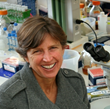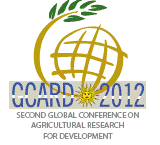Prizes

The Louis Malassis International Scientific Prize for Agriculture and Food aims to recognize individuals, or a group of individuals, for their exemplary and promising contribution in promoting innovation through research, development and capacity building in the North, South or in the Mediterranean, in order to improve food and agricultural systems sustainability as well as contribute to addressing food security and poverty reduction.
The Prize consists of two categories:
- Louis Malassis Distinguished Scientist Prize is conferred to an outstanding scientist, or a group of scientists, who holds a PhD degree, with at least 15 years of professional experience and who has made significant contribution in the field covered by the Prize through his/her (or their collective) work. The awardee will receive €20,000.
- Louis Malassis Young Promising Scientist Prize is given to a young individual, or a group of young scientists, who has carried out original and promising work in the field covered by the Prize. The awardee should be no more than 40 years old by 01 January 2012, hold a PhD degree and have at least five years of professional experience in the field covered by the Prize. The winner will receive €20,000.
2012 Louis Malassis International Scientific Prize for Agriculture and Food
awarded during GCARD2
Award ceremony organized on 29 October 2012, in Punta del Este, Uruguay
29 October 2012, Punta del Este (Uruguay) - The Louis Malassis International Scientific Prize for Agriculture and Food, launched by Agropolis Fondation, has been awarded to Pamela Ronald, from University of California -Davis in the “Distinguished Scientist” Category, and to Matty Demont, from Africa Rice Center, in the “Promising Young Scientist” Category.
Both winners received their certificate and prize of €20,000 each in an Award Ceremony held on 29 October 2012, during the 2nd Global Conference on Agricultural Research for Development (GCARD2) in Punta del Este, Uruguay.
|
“It has been a great privilege to work as a scientist in the public sector at the University of California Davis for 20 years and to have opportunities to work with geneticists at the International Rice Research Institute (IRRI) and other institutions. With their help, our basic discoveries have benefitted farmers in the developing world. I hope to continue to have opportunities to advance basic research and also to engage the public on issues of food security, plant genetics and ecologically-based farming,” says Pamela Ronald. Pamela is a Professor in the Department of Plant Pathology at UC-Davis. She has worked on improving rice resistance to diseases and tolerance to flooding, which are serious problems of rice crops in Asia and Africa.
|

|
|
“I am very grateful to Agropolis Fondation for the recognition of my work. The prize marks a milestone in my research career and provides the much needed confirmation that my research was leading to something. The fact that I received it from the foundation based in Montpellier —the campus that has so much inspired me and shaped me into the researcher I am today—means a great deal to me, “ declares Matty Demont, Value chain economist at AfricaRice (Saint Louis, Senegal). Matty works with the private sector and with a network of 1,600 women across Africa - through participatory experimental approaches—in order to better understand bottlenecks in upgrading rice value chains in the region.
|

|
The Louis Malassis International Scientific Prize for Agriculture and Food was created by Agropolis Fondation, as a tribute to Louis Malassis, an ardent supporter of farmers’ cause, and founder of the Agropolis scientific cluster in Montpellier.
The Prize, given once every two years, aims to recognize individuals, or a group of individuals, for their exemplary and promising contribution in promoting innovation through research, development and/or capacity building in order to improve food and agricultural systems sustainability as well as to address food security and poverty reduction.
The Prize has two categories: “Distinguished Scientist” which comes with €20,000 and “Young Promising Scientist” which comes with €20,000.
The Prize is also supported by the Languedoc-Roussillon Region.
Agropolis Fondation (www.agropolis-fondation.fr ), the French foundation for agricultural research and sustainable development, established in February 2007, aims to promote international attractiveness of research projects, especially in hosting top-notch scientists in Montpellier and encouraging interdisciplinary efforts on today’s key development issues: Increasing demand for plants and plant by-products for both food and non-food applications; interaction between climate change and crops; and prevention and management of risks related to crop and food systems (bio-invasions, pest and emerging diseases, erosion of natural resources and biodiversity, etc).
Agropolis Fondation’s charter members are INRA (Institut National de la Recherche Agronomique), CIRAD (Centre de Coopération Internationale en Recherche Agronomique pour le Développement), IRD (Institut de Recherche pour le Développement) and Montpellier SupAgro (Centre International d’Etudes Supérieures Agronomiques), main french actors for research and higher education in agriculture, and scientific international cooperation.
Contact :Oliver Oliveros, Senior Officer ()



